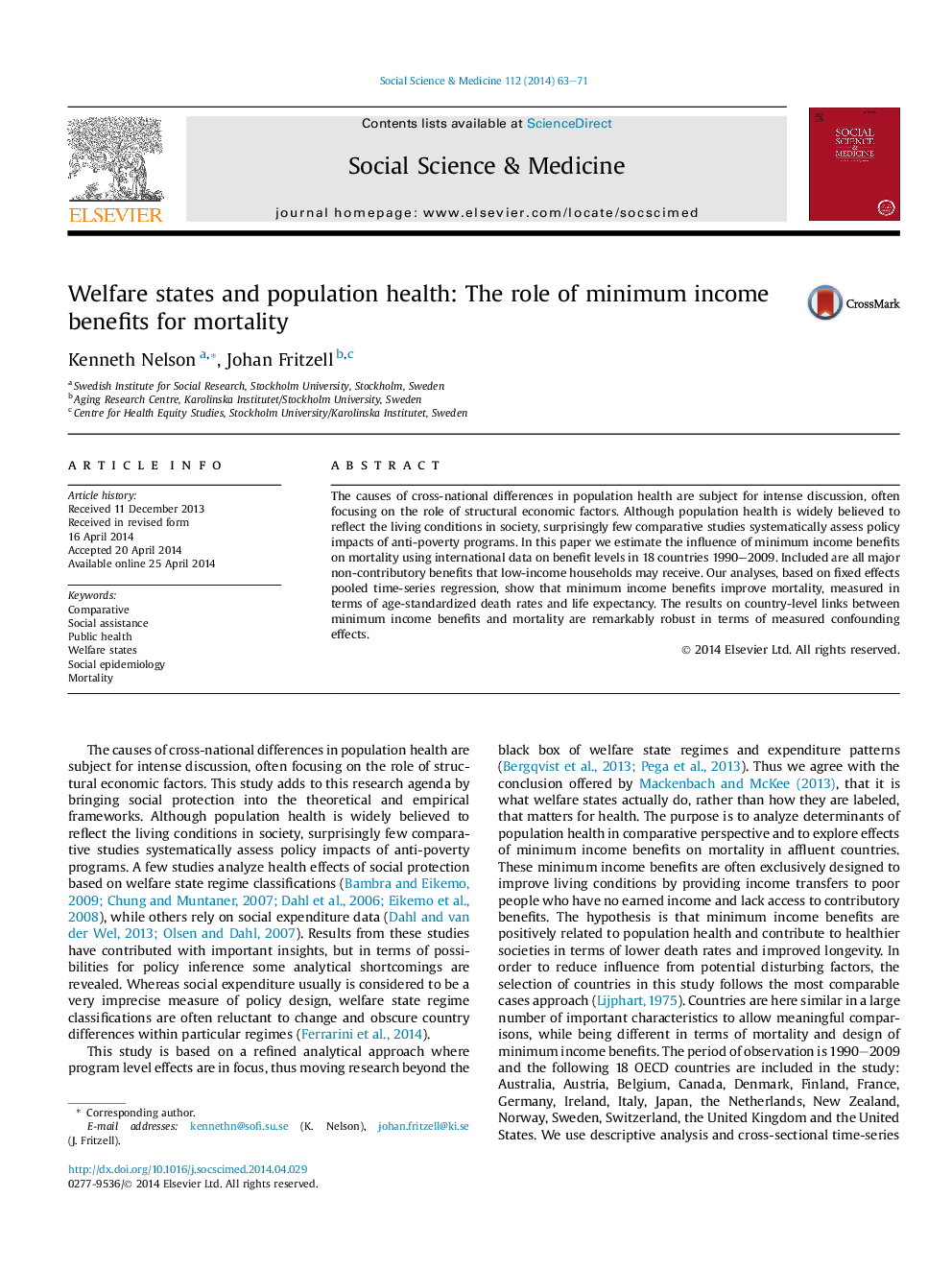| Article ID | Journal | Published Year | Pages | File Type |
|---|---|---|---|---|
| 7334869 | Social Science & Medicine | 2014 | 9 Pages |
Abstract
The causes of cross-national differences in population health are subject for intense discussion, often focusing on the role of structural economic factors. Although population health is widely believed to reflect the living conditions in society, surprisingly few comparative studies systematically assess policy impacts of anti-poverty programs. In this paper we estimate the influence of minimum income benefits on mortality using international data on benefit levels in 18 countries 1990-2009. Included are all major non-contributory benefits that low-income households may receive. Our analyses, based on fixed effects pooled time-series regression, show that minimum income benefits improve mortality, measured in terms of age-standardized death rates and life expectancy. The results on country-level links between minimum income benefits and mortality are remarkably robust in terms of measured confounding effects.
Related Topics
Health Sciences
Medicine and Dentistry
Public Health and Health Policy
Authors
Kenneth Nelson, Johan Fritzell,
